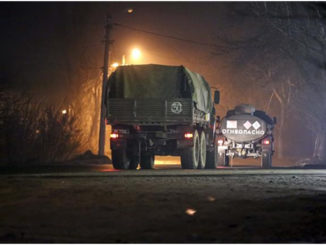
Islamabad (TIP): In yet another effort to build trust with the Taliban government, China and Pakistan agreed to include Afghanistan as part of the Belt and Road Initiative (BRI).
Sources here pointed out that China had issued a joint statement with the earlier regime of Hamid Karzai and this latest reiteration comes soon after the Taliban government inked a MoU with a Chinese firm to prospect for oil in the Amu Darya basin in northern Afghanistan. It is estimated that Afghanistan has mineral resources estimated at $1 trillion. Seven Indian companies headed by SAIL had been allocated a huge iron ore mine in Bamyan district by the previous regime but the project now appears to have been mothballed.
India is also building a communication route into Afghanistan from Iran’s Chabahar port. It has also built a road connecting Afghanistan’s Garland Highway with a town on the border with Iran. Another enduring road or rail link from that town of Zahedan to Chabahar will make it the shortest route from the sea into non-Pashtun areas.
The latest announcement, however, did not involve the Taliban side because it is under economic sanctions. With Taliban Interim Foreign Minister Amir Khan Muttaqi was also part of the deliberations, the decision was presented as one taken between Chinese Foreign Minister Qin Gang and his Pakistani counterpart Bilawal Bhutto Zardari in Islamabad on Saturday, a day after the duo returned from the Shanghai Cooperation Organisation (SCO) meeting in Goa. In 2016, the joint statement had welcomed Afghanistan’s participation in the BRI and China agreed to support Kabul’s “integration into regional cooperation by taking advantage of its location as a natural continental bridge and the center of Asia”. The latest joint statement signed by China and Pakistan agreed to enhance development cooperation in Afghanistan, “including through extension of China-Pakistan Economic Corridor (CPEC)”. Last December, China began implementing zero tariff on 98 per cent of products from Afghanistan.
The decision to extend the BRI into Afghanistan followed several meetings between Pakistan and China. The CPEC, however, has so far not lived up to its original intentions. IT has suffered delays and cost overruns due to the Covid pandemic, Pakistan’s bankruptcy, the regime turnover in Afghanistan and attacks on some of the projects.
India too is attempting trust building with the Taliban regime, having provided huge amounts of humanitarian assistance. A ‘technical team’ now means its Embassy in Kabul which is attempting to maintain or complete projects financed by India. Recently, Afghan Foreign Ministry officials have been joining MEA’s training programmes for diplomats from developing countries. However, unlike China, India still recognises the previous regime’s envoy in Delhi. (TNS)





953378 41886Maintain all the articles coming. I enjoy reading through your points. Cheers. 355751